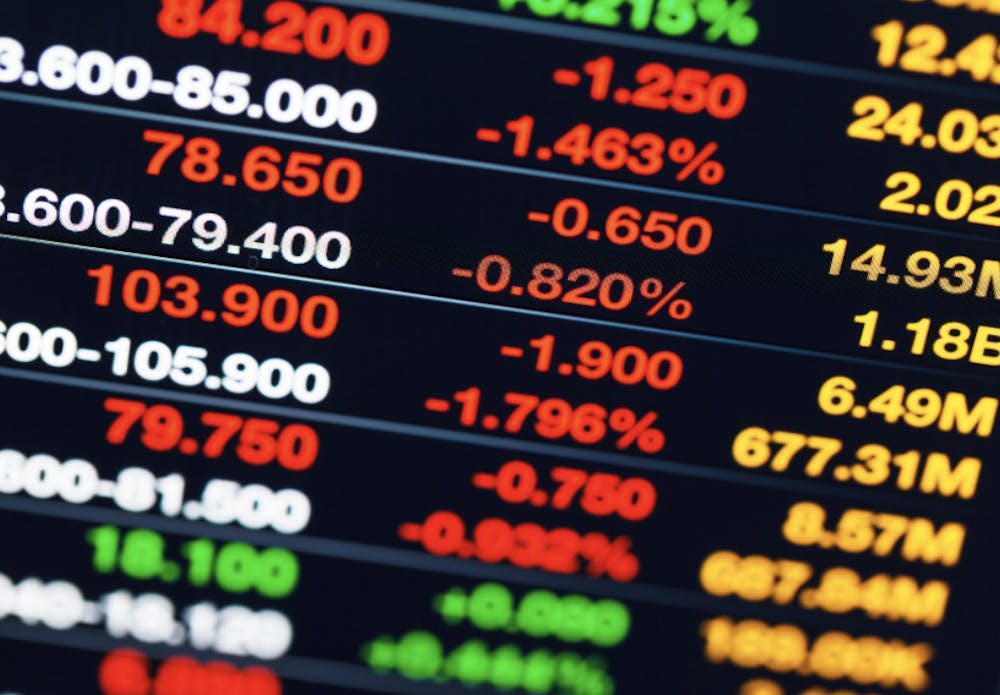By Jenny Marcinkowski
Staff Writer
GameStop’s stock (GME) reached record highs last week hitting $468 a share after closing on an average of $18 in early January. This short squeeze comes after a group of small investors on the subreddit r/WallStreetBets decided to take on hedge funds and purchase the once-dwindling stock to replicate an event similar to the one seen at Volkswagen in 2008, according to CNBC.

GameStop is a brick and mortar company where customers are able to trade-in and purchase video games, consoles, collectibles, and VR sets. The company has faced financial struggles with having to close over 1,000 stores by the end of the 2020 fiscal year. The video game market has also become more lucrative with more people purchasing their games digitally rather than buying physical copies.
“GameStop has captured the attention of the world from Main Street to Wall Street, showing the power of social media and populism,” said Professor Susan Hume of the finance department.
It all started when u/Player896 posted the thread, “Bankrupting Institutional Investors for Dummies, ft GameStop” on Sept. 19, 2020. The user essentially outlined the need to start investing in GameStop because institutional investors like Chewy co-founder, CEO Ryan Cohen and hedge funds like Melvin Capital Management and Citadel LLC were shorting the stock assuming it would continue to drop.
However, u/DeepFuckingValue has been preaching this movement since 2019 when he initially invested $54,000 into GameStop. According to screenshots he posted to a thread on Wednesday, his stock rose to $48 million. While u/Player896 brought light to the issue, u/DeepFuckingValue was proof that one could make money off investing in GameStop.
Many people on social media who never purchased stocks before wanted to get in on the action and join the movement as the news went viral.
“Thanks to social media this one may have caught more people and the ability to buy just one share makes it possible for so many people, especially young ones, to get caught up in it,” said Professor of finances at the College, Herbert Mayo.
Robinhood, a popular stock and trading app, temporarily restricted trading for GameStop along with other companies whose stock rose due to WallStreetBets like AMC Entertainment, Blackberry, and Nokia. This caused many people, including politicians Rep. Alexandria Ocasio-Cortez, Tesla CEO Elon Musk, and Jordan Belfort to ridicule Robinhood’s CEO Vladimir Tenev on the belief that restricting such trading is market manipulation.
http://twitter.com/AOC/status/1354830697459032066?s=20
“We absolutely did not do this at the direction of any market major or hedge fund or anyone we route to or any market participates,” Tenev said in an interview with CNBC’s Andrew Ross Sorkin. “We have SEC net capital requirements and clearing house deposits. So that’s money that we have to deposit at various clearing houses. Some of these requirements fluctuate quite a bit based on volatility in the market and they can be substantial in the current environment where there’s a lot of volatility and a lot of concentrated activity in these names that have been going viral on social media.”
Some argue that Robinhood could have instead increased margin requirements. This could have had the same result without shutting down those few stocks and hurting the momentum those investors had.
People are also raising questions about the connections that Robinhood has with Citadel and their intentions.
“Robinhood has shown ties in their financial statements to Citadel Securities in the buying and selling of real time data from their customers. Citadel LLC, a separate business entity with the same owner, bailed out Melvin Capital’s losses from their short position in GameStop. When Robinhood restricted trading on Gamestock this raised questions about possible conflicts of interests and market manipulation,” said Mike Ware, an alum of the College as a finance major.
These retail investors created a short squeeze, which is when a shorted stock sharply rises and forces investors who betted against it to buy into it so they do not face greater losses. Professor Mayo says a mania like this can be traced back to the Tulip Bulb Mania in Holland in the 1600s.
The Tulip Bulb Mania occurred when a Dutch botanist discovered the tulip in 1593 and overvalued its price. The Tulip became a status symbol for the wealthy Dutch and Europeans and then in 1637 the price began to sharply drop when people began to sell it to gain profit and others decided to sell it as well so they would not lose more money.
Wall Street has significantly been hurt by this 2021 mania. Melvin Capital reported 53% losses in January, a source told The Wall Street Journal. Melvin Capital, in addition to Citron Research, Candlestick Capital Management, Point72 Asset Management, Maplelane Capital and D1 Capital Partners are expected to lose $5 billion as a result of the short squeeze according to Business Insider.
However, many people still think that regular traders are getting the short end of the stick far too often in order for wall street to prevail.
“It will keep happening because WallStreetBets are willing to lose everything so it will keep happening until they lose their war chest. That is the best case of protest, doing real damage to the financial institutions and getting our voices heard,” said junior Seva Galant, a health and exercise science major.
GameStop’s stock has significantly decreased since its high of $468 and closed on Tuesday at $90, a nearly 75% percent drop. With the company still facing financial difficulties from the previous years, the future of GameStop is still uncertain.







